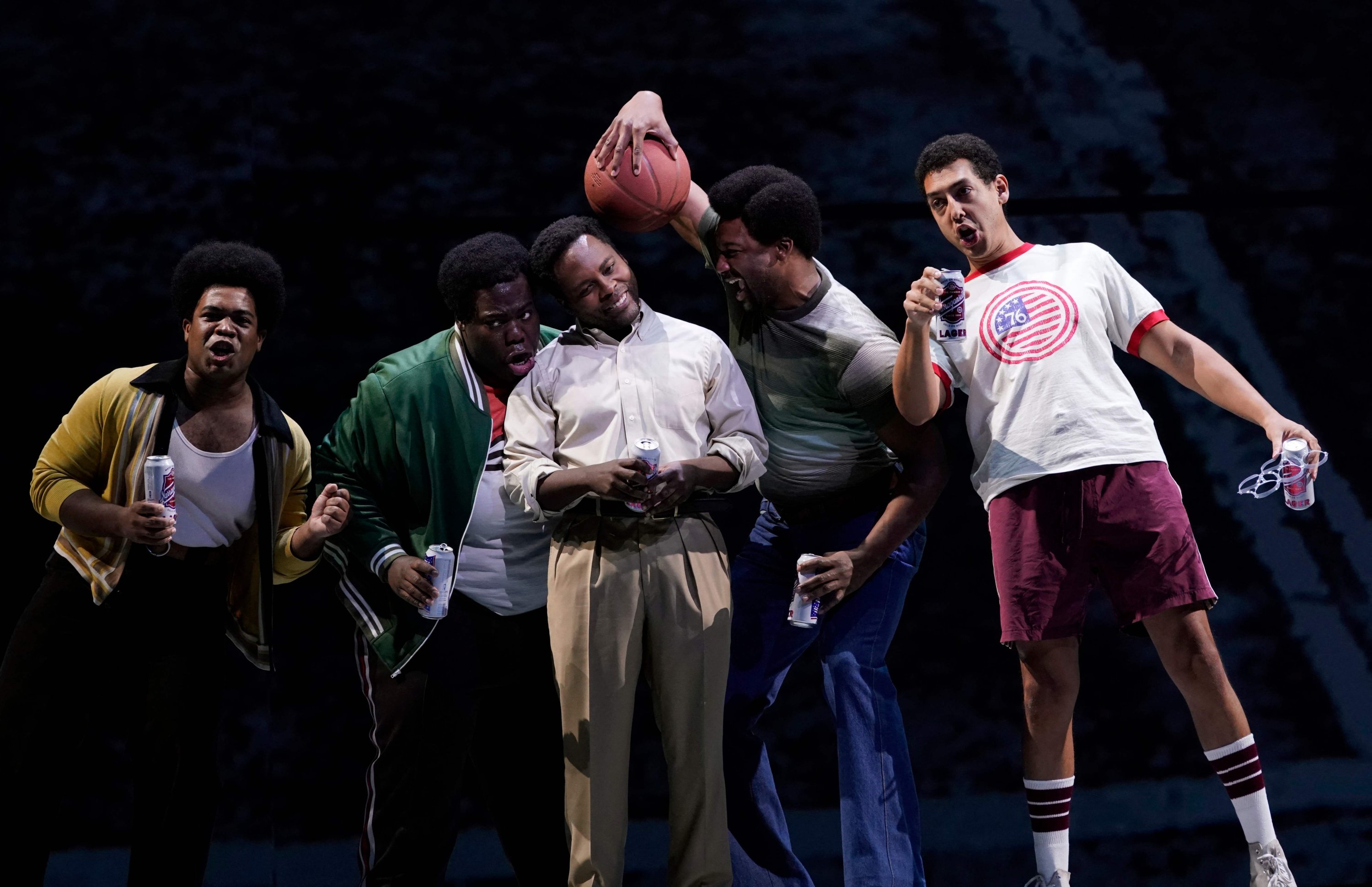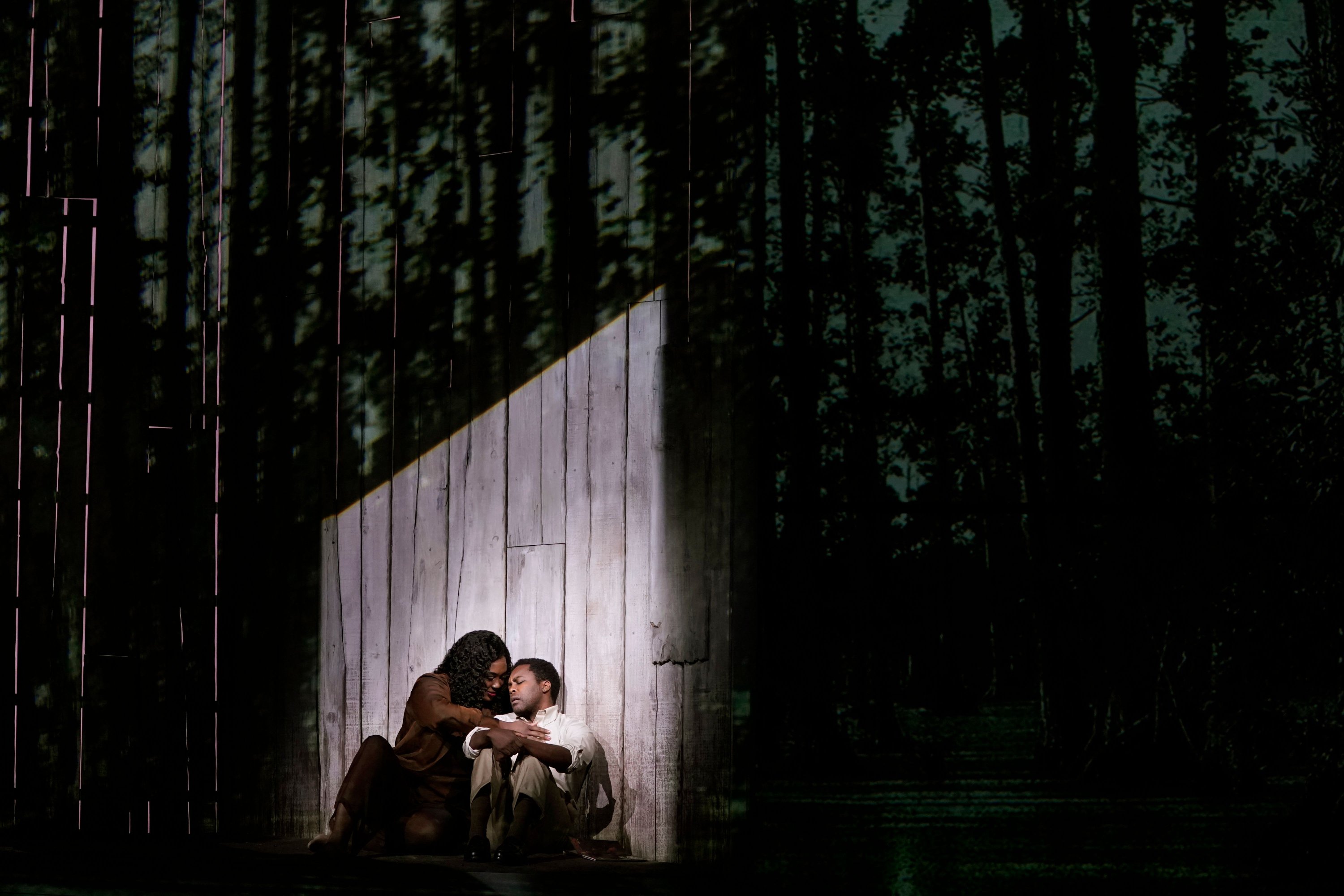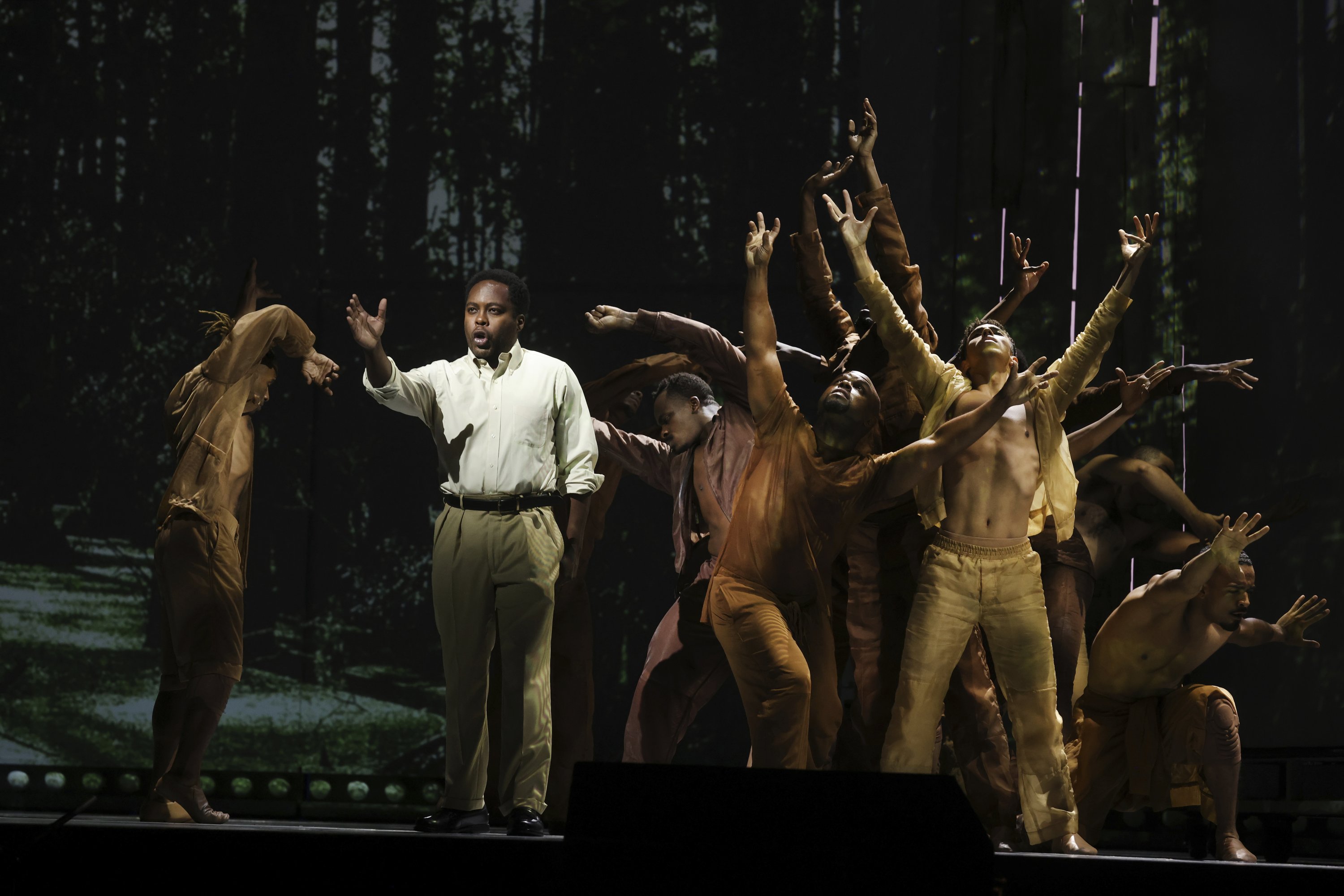“Fire Shut Up In My Bones,” a poignant opera centered on the tension of growing up a black man in the American South, was composed by Terence Blanchard, a top-tier jazz trumpeter and Spike Lee’s go-to film score master for three decades.
When the premier U.S. opera company in 2019 first announced its forthcoming staging, it was unclear when exactly “Fire” would come to Manhattan.
But the months of Black Lives Matter protests that reverberated nationwide and beyond over the summer of 2020 lent the project new urgency.

Actor Will Liverman (C) and cast members perform a scene during a rehearsal for Terence Blanchard’s ‘Fire Shut Up in My Bones,’ at the Metropolitan Opera in New York, Sept. 24, 2021. (AFP Photo)
The Metropolitan Opera is the largest performing arts institution in the U.S., but in its 138 years of existence has never before presented an opera by a black composer.
Reopening the Met’s doors with Blanchard’s work offered an opportunity to make a statement.
It’s progress “bigger than me,” the Grammy-winning, Oscar-nominated artist told Agence France-Presse (AFP) when the Met first announced it would produce “Fire.” “It says more about what’s going on in our country; what’s going on in the world of art … and the statement that this makes.”
“Fire,” which originally premiered in St. Louis, Missouri, is Blanchard’s second opera.
With a libretto from film director Kasi Lemons, “Fire” is based on the searing memoir of Charles Blow, a columnist at The New York Times. The book recounts his coming-of-age as a black boy in the U.S. Deep South, grappling with racism and abuse, sexuality and inner rage.
Blanchard, 59, is a showbiz regular: he’s scored dozens of films during a vibrant career that has included working with greats like Herbie Hancock, Dr. John and Stevie Wonder.
‘Momentous thing’
About an hour before thousands of people dressed in evening-wear – including a parade of vibrant jewel-toned gowns and feathered shifts – began sashaying into the storied house at Lincoln Center, a long line formed outside an open-air amphitheater in Harlem for a simulcast of “Fire.”
Among that audience was Linda Talton, who called it “sad” that it took the Met more than a century to feature the work of a black composer. “There’s so many black composers who probably could have done this 50 years ago, 75 years ago,” the 54-year-old education consultant said. “This is just America.”
Blanchard’s jazz-inflected score ushered the powerful show with a world-class set through a number of emotional scenes. The performance also featured several gripping dance sequences, including a collegiate step-dancing number that brought the audience to its feet with applause midway through the second act.

In this photo provided by the Metropolitan Opera, the audience stands for the national anthem before the performance of Terence Blanchard’s “Fire Shut Up in My Bones,” which opened the Metropolitan Opera’s 2021-2022 season on Monday, Sept. 27, 2021, in New York. (Jonathan Tichler/Metropolitan Opera via AP)
“Fire” began with Blow as a young child, played by the impressive Walter Russell III, and saw his development into a young adult, played by Will Liverman. The acclaimed Angel Blue played his college girlfriend Destiny, and also appeared onstage throughout as a captivating metaphor for “Loneliness.”
The Met’s 3,800-seat theater opened its doors at Lincoln Center after months of heated labor talks – a dispute that had threatened to derail the opening performance.
But in late August, the orchestra struck a deal with management, which reportedly included pay cuts for musicians with vows to restore some of that pay once box office revenues hit 90 percent of pre-pandemic levels.
All customers and staff along with orchestra and chorus members must show proof of vaccination against COVID-19 during the 2021-22 season, as will attendees.
The rest of the Metropolitan Opera season features works by Verdi, Mozart, Wagner, Stravinsky, and Puccini.
“Fire” is currently slated to run until October 23. “I have a feeling it’s going to be a momentous thing, and not because it’s me,” Blanchard had told AFP of the historic staging. “Just because it is.”
This article originally appeared on Daily Sabah on September 28, 2021, and has been reposted with permission. To read the original article, please click here.
This post was written by the author in their personal capacity.The opinions expressed in this article are the author’s own and do not reflect the view of The Theatre Times, their staff or collaborators.
This post was written by French Press Agency (AFP).
The views expressed here belong to the author and do not necessarily reflect our views and opinions.



















